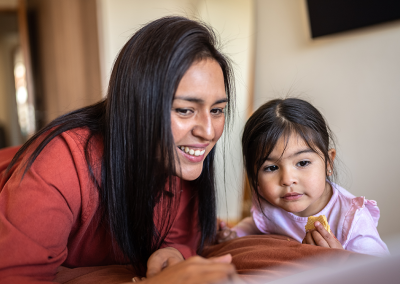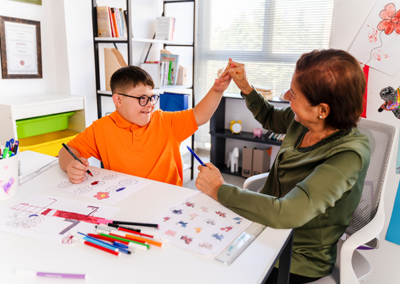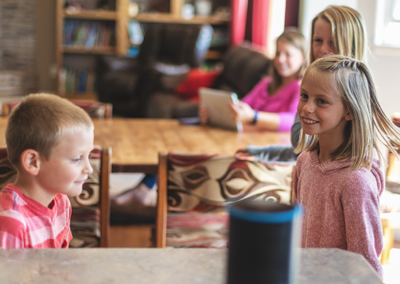Children and Families
ORI scientists partner with parents, schools, and communities to develop, adapt, implement, and test evidence-based programs to improve child outcomes and prevent the onset of problem behaviors.

Broadening Participation in Mathematics for English Learners with Mathematics Difficulties: A Multi-Site Impact Study

Building a Flexible and Comprehensive Approach to Supporting Student Development of Whole Number Understanding

Coach Facilitated Mobile Parent-Training program for Women with Cognitive Delays who are Mothers of Infants

Collaborative to understand impacts of early preventive interventions on suicide and overdose mortality using data harmonization methodology

Developing an Early Mathematics Intervention for Children with Disabilities in the Home Learning Environment

Development and Evaluation of a Multi-Media Training Program for Elementary School Bullying and Abuse Prevention: radKIDS 2.0

Development of a Technology-Supported Adaptive Intervention for Young Children with Language Disorders and their Spanish-speaking Caregivers

Development, Feasibility, and Acceptability of Aim to Play, a User-Friendly Digital Application for Teacher Skills Training and Physical Education Activities for 3-5 Grade Elementary Students – Phase 2

Effects of CIRCLES on the provision of transition services and the resulting transition outcomes for students with disabilities

Examining the Efficacy of Friends on the Block: An Intensive Early Literacy Intervention for Elementary Students with Intellectual and Developmental Disability

HealthyU-Latinx: A Technology-based Tool for Addressing Health Literacy in Latinx Secondary Students and their Families

Integrated Smart Speaker/Mobile Application to Promote Positive Parenting among Caregivers of Youth with Challenging Behaviors

MomNet: Development of a Coach-Training Program for an Empirically Supported, Guided eHealth Intervention for Depressed Mothers

Multi-Media Professional Development for Parenting Educators to Deliver Oral Hygiene Education for Parents of Young Children

Parent-Child Interaction Dynamics Mediate Genetic and Prevention Effects on the Development of Adolescent Substance Use Disorders

Preventing Adult Mental Health Problems from Early Childhood in the Contexts of Genetic Susceptibility, Poverty, Racism, and the COVID-19 Pandemic

Preventing Adult Mental Health Problems from Early Childhood in the Contexts of Genetic Susceptibility, Poverty, Racism, and the COVID-19 Pandemic, Diversity Supplement

SIBTime: Media-enhanced Technology for Promoting the Behavioral Health and Family Relationships of Typically Developing Young Siblings, Phase II

TIPS (Team-Initiated Problem-Solving) Evaluation: An Effectiveness Replication of a Widely Used Problem-Solving Process for Data Teams Implementing Schoolwide Behavior Supports – TIPS Replication

Transforming Adolescent Mental Health through Accessible, Scalable, Technology-Supported Small-Group Instruction

Development, Feasibility, and Acceptability of Aim to Play, a User-Friendly Digital Application for Teacher Skills Training and Physical Education Activities for 3-5 Grade Elementary Students

Development of the Cannabis Actions and Practices (CAP): A Parent-Focused Intervention to Address Adolescent Marijuana Use

Media-enhanced Technology for Promoting the Behavioral Health and Family Relationships of Typically Developing Young Siblings, Phase I

Multi-Media Parent-Based Intervention to Promote Dental Hygiene Among Young Children: BeReady2Smile_II















